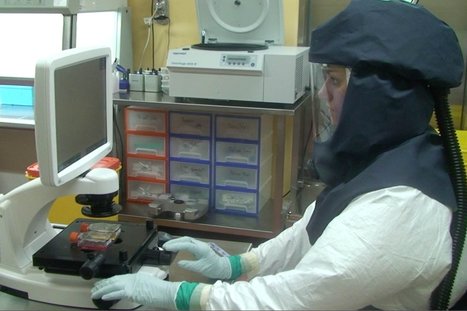Researchers in virology and veterinary bacteriology at the University of Bern have cloned the novel coronavirus (SARS-CoV-2). The synthetic clones are being used by research groups worldwide to test corona samples, find antiviral drugs and develop vaccines as quickly as possible. The method developed in Bern can also be used in future to combat other highly infectious viruses. In the high-security laboratory of the Institute of Virology and Immunology (IVI) of the Federal Food Safety and Veterinary Office (FSVO) in Mittelhäusern and at the Vetsuisse Faculty of the University of Bern, the researchers successfully reconstructed the coronavirus from synthetic DNA (deoxyribonucleic acid). DNA copies containing parts of the coronavirus genome were introduced into yeast cells and assembled into a complete copy. The researchers then used this to produce infectious coronaviruses.
"We replicated the virus within the space of a week,"says Professor Volker Thiel from the Institute of Virology and Immunology. The researchers used a yeast cell system developed in Bern which has now proved its value in an epidemic situation for the first time. "We have optimised this system to allow us to clone coronaviruses and other viruses quickly,"adds Professor Jörg Jores from the Institute of Veterinary Bacteriology at the University of Bern. The Bern method allows a rapid response to new and fast-spreading viruses and their characteristics in real time—i.e. during an outbreak. The provisional results of the study, which has also attracted the interest of the World Health Organization (WHO), were already available for scientific discussion on a preprint server. The final results have now been published in the journal Nature. Professor Thiel's group has supported many of the world's diagnostic laboratories by providing the synthetic clones, allowing faster and more accurate testing of corona samples. The Bern researchers have also been inundated with requests from companies and fellow researchers to test potential antiviral agents on the clones in the high-security laboratory.
Published in Nature (May 4, 2020):



 Your new post is loading...
Your new post is loading...







